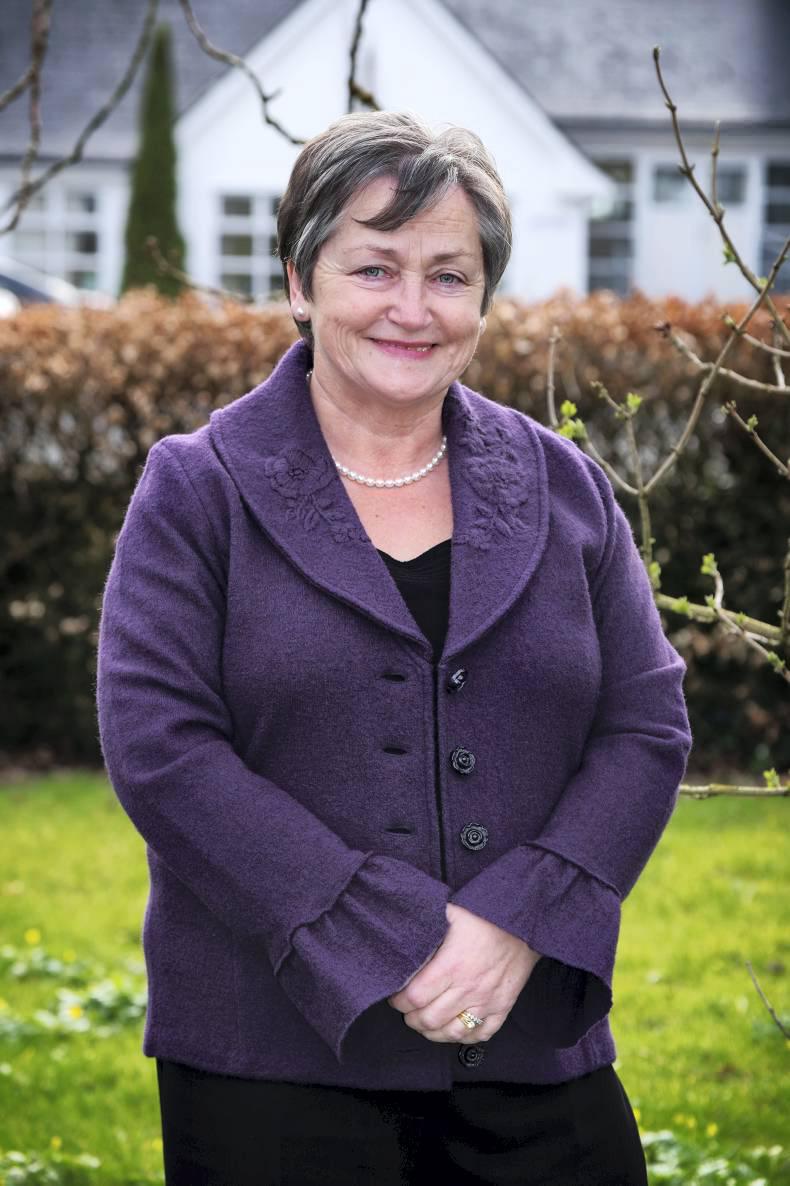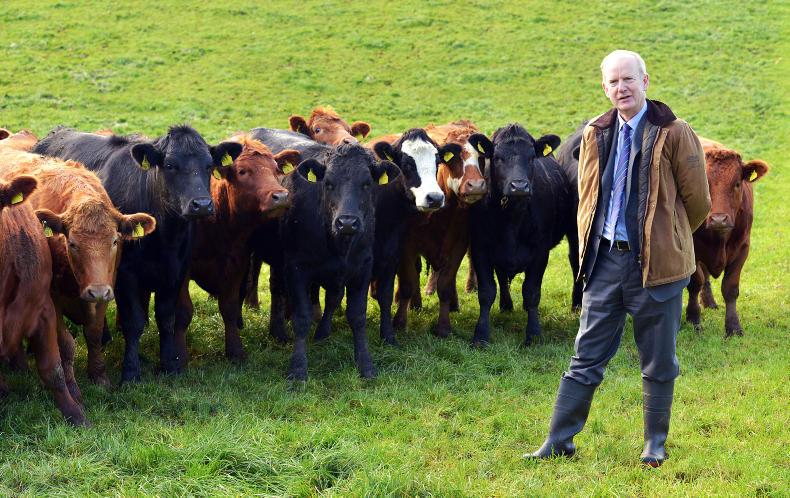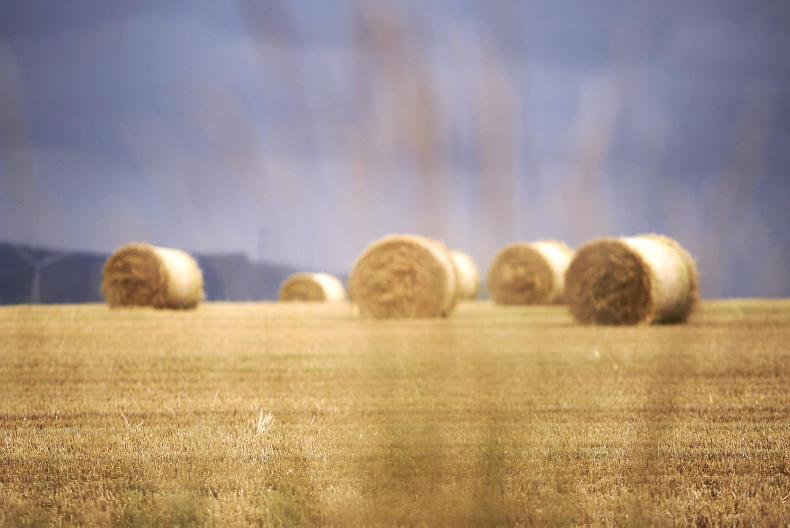Even though Delia Colahan has spent most of her life living in Ballinasloe, she is a Cork woman born and bred. Her early influences include the Holy Family Sisters in Newbridge.
“I grew up in a time when Ballincollig was a small village. My mother died when I was just six years old and so, as well as living at home, I spent time with relations and went to school with the Holy Family Sisters. I thought they were wonderful. They were open and fair and they gave me a great education. They weren’t just interested in the very bright students. They did their best for all of us.”
Like so many girls at the time, Delia did a year in Cathal Brugha St after completing the Leaving Certificate.
“I had aspirations of being a hotel manager but that wasn’t to be. I don’t know what the turning point was, but I was always interested in people who were different.”
So she changed course and went to study psychiatric nursing at St Patrick’s Hospital.
“From the very first day I loved the place and people. It was a great place to train and still is an excellent forward-thinking hospital.”
New beginnings
Delia was only 21 when she married Michael. While that seems very young now, it wasn’t a bit strange in the 1970s. Michael worked with Aer Lingus and they spent the early years of their marriage working in England. It was when the first of their two daughters arrived that the decision was made to return to Ireland.
They settled in Ballinasloe, with Michael working in AT Cross while Delia looked after the girls. She was big into crafts and that led to her opening a wool shop in the town.
“I loved it. I made loads of friends and I even taught machine knitting for Brother. Then it became cheaper to buy good quality woollen goods and that finished the business. I’m delighted to see a resurgence in crafting. It’s spurred so many people to set up their own successful businesses and allows them to work around their lifestyle which is great.”
Having spent time working in the home and raising her girls, Delia began work with Ballinasloe Community Resource Centre and that put her on the road of community involvement.
In 1997 she established a mediation outreach service for the unemployed with Roscommon Partnership. However, tough back surgery intervened and in order to make a full recovery Delia resigned from this job.
Working with people
On recovery, Delia took a job as mediator with the unemployed in east Galway. This was intensive one-to-one work with a mix of long- and short-term unemployed.
“Very often someone who is unemployed has no idea what they want to do. A very high percentage begin to believe there’s nothing for them. They don’t get angry, they begin to believe they are worthless. It’s the very same with communities. They lose a post office, or doctor’s surgery and they don’t believe they can fight back or that their voice will be heard.
“The older unemployed grew up in an era when they were never asked what kind of work they would like to do. Money was needed and that was the bottom line, so they took the first job they were offered.
“Now parents bend over backways to give their children a good education. This is fine up to a point, but we must also encourage young people who have an idea or interest to act on it.”
Delia continued to work with the unemployed and managed the Local Employment Service in Galway city for over five years. Her role here was to oversee the work of a group of mediators and information officers. Clients were at the lower end of the skill range and often had mental health issues.
“The progress of someone out of work for less than one year versus someone who is out of work for years and who has mental health issues is very different. For one, progress is getting another job and for the other it could be gaining the ability to keep an appointment.”
New level
In May 2007, Delia became co-ordinator of enterprise and services for the unemployed with Galway Rural Development. It was only a matter of months after that that the manager was due to retire and Delia went on to get that job.
“I knew Galway Rural Development and its staff really well as I had been a board member for years. It had been established in 1994 by a group of community-minded people who understood what LEADER could mean for Co Galway.
“These people showed great vision and they must be appalled at what is happening now to Local Development companies. Mind you, some of them would say they saw it coming several years ago.”
In her new job, Delia and her team planned and put in place the current LEADER programme which was worth €12 million to the local economy.
“The success of the plan is down to staff and community input and their invaluable experience. The village of Ahascaragh is just one example of a community making progress and having its capacity enhanced by being able to access different supports offered by Galway Rural Development.
“Ideally, you get to the stage where communities can work without the support of a staff person. But while some are at that stage, many other communities still need support.”
Delia is clear about the legacy of LEADER to Co Galway: “I can physically see the projects and visible outcomes. It has enhanced the rural area and economy. It has created an awareness that by coming together communities can achieve much more than working alone. That has to be the essence of LEADER.
“If LEADER is no more, communities can still come together to do what’s needed and source other funding because they now have the capacity to do so. If we had one failing with LEADER, it is while busy with the work, we didn’t make it clear to the wider community and nationally exactly what we were doing and the successes in rural Ireland.”
If local development companies lose out, the EU must ask why?
Delia says it is important to realise that the Local Development Companies are about more than LEADER. They deliver many more small programmes such as TÚS and the Rural Social Scheme, but LEADER and the Local Community Development Programme are the core and both have been shaken to their roots.
“The trouble is when something is successful it is coveted by others. Because of this there’s been a slow dismantling of local development companies (LEADER) and what we do.
“I don’t believe the newly formed Local Community Development Companies (LCDCs), which are totally controlled by the local authorities, will deliver the LEADER programme anyway as effectively as it’s done now.”
It’s with this in mind that the board of Galway Rural Development recently confirmed it will be submitting an expression of interest in managing and delivering the next LEADER programme.
“We have an obligation to do this, to do it for our founders, our communities and our staff. We are doing it with the strong intention of being able to deliver. However, our big concern is that the LCDCs are the preferred option and with that being openly stated by Alan Kelly, Minister for the Environment, how can the selection process be anyway open and transparent?”
If, in the majority or all cases, the new LCDCs were to win the contract to manage the next LEADER programme, Delia is at a loss to understand how the EU Commission could stand by and not ask questions about the process.
“There is an onus on the EU Commission to monitor the fairness of the decision making and selection process used for this LEADER programme. If it suddenly changes out of all proportion and existing LEADER companies that have been acclaimed across Europe fail to get the contracts, then someone has to ask the question why?
“These are companies that have been audited and inspected time after time and haven’t been found wanting, in fact the exact opposite is the case. The companies have always accepted this close monitoring because the funds they administer are not their own money.”
To add to Delia’s concerns are the recently announced budgets for LEADER across all of Galway which amount to €12.5million.
“In the last LEADER programme, Galway Rural Development committed €12million just in its area. So it’s a substantial reduction in funding from the last time and that is going to be a challenge. Not to mind that fact that a budget has been allocated long before any plan has been produced.”
Whatever the outcome of the next LEADER programme, the legacy of Galway Rural Development is impressive. A massive 380 plus community groups are receiving support as well as many businesses across its catchment area. Between July 2001 and December 2013 a massive €78.7 million funding was secured from all programmes, compared to about £4.5million between July 1994 and June 2000.
Twenty years of work that the founders, communities and staff can be very proud of.
Fact box
Family: Married to Michael with two grown-up daughters and two grand-daughters, Ava (seven) and Rachel (two), and both are priceless.
Hobbies: I’m an avid reader and am currently reading The Taliban Cricket Club which I heartily recommend.
Cooking: I like to cook but don’t do it as much as I used to. I love cooking for big family get-togethers.
Clothes: I hate shopping – it just doesn’t figure in my life. I wear smart jackets and trousers but I couldn’t tell you the name of a label.
Television/cinema: The last film I saw was War Horse and I watch Silent Witness and Borgen. I got a box set of All Creatures Great and Small for Christmas and am looking forward to watching that.
Memorable moment: I love when staff succeed in getting challenging projects completed. The sense of achievement is always greater when you have to go the extra mile.










SHARING OPTIONS